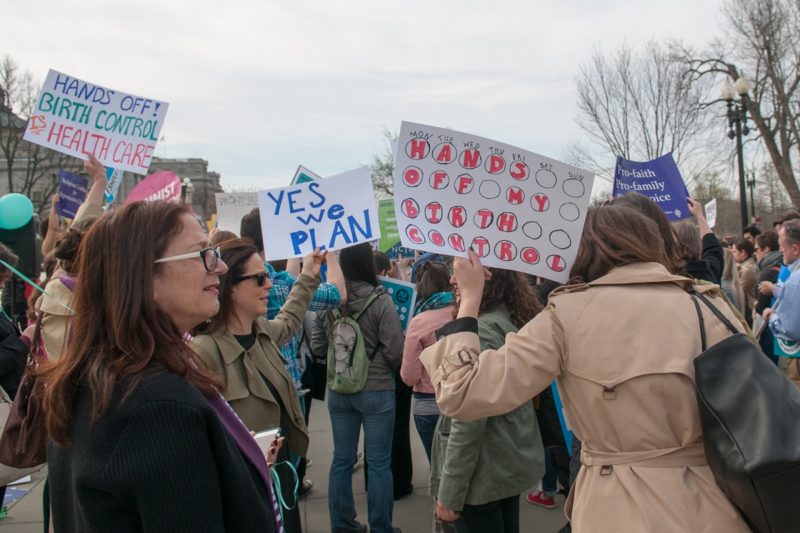Thanks, Birth Control Day: Celebrate Gains, But Keep Fighting
On this day, let’s praise the great things made possible by birth control, but let’s also not forget that we’re still in the middle of a fight to keep birth control affordable and accessible.

When the National Campaign to Prevent Teen and Unplanned Pregnancy launched Thanks, Birth Control Day five years ago, the world was a very different place. Much has changed since then, but one thing has not: Birth control is popular.
Thanks, Birth Control Day, which takes place annually on November 15, was created to celebrate the good things birth control makes possible.
Despite attacks on reproductive health, birth control is not controversial. In fact, 99 percent of women of reproductive age who have had sex with a man will use some form of birth control in their lifetimes. Women and men—regardless of political and religious affiliation—support the right to access the full range of contraceptive methods. Movements like #ThxBirthControl and #HandsOffMyBC make it very clear that people are more comfortable than ever sharing the remarkable things that birth control makes possible in their lives.
And make no mistake, birth control has changed the game for women—and trans and gender-nonconforming people—everywhere.
Bloomberg Businessweek recognized contraception as a top economic driver for women and one of the most transformational developments in the business sector in the last 85 years. A University of Michigan study suggests one-third of the wage gains women have achieved since the 1960s are the result of access to oral contraceptives. Further research indicates a 3 percent increase in weekly wages and a 9 percent increase in career earnings for each year of delayed childbearing, even after accounting for differences in other background characteristics that could affect a woman’s earnings.
Trans and gender-nonconforming people also continue to benefit from birth control. For many, it’s preventive, life-saving medicine, as it can help alleviate painful periods and discomfort relating to gender dysphoria.
Just as we needed to be loud and proud about birth control five years ago, our research at the National Campaign shows that more than 19 million women eligible for publicly funded contraception do not have access to the full range of contraceptive methods in the counties in which they live. In the state of Ohio, nearly half of the 730,000 women ages 13-to-44 in need of publicly funded contraceptive services cannot access the full range of methods in the county in which they live.
These inequities may worsen as the Trump administration and many in Congress work to roll back the Affordable Care Act’s contraceptive coverage provision that has provided contraception without co-pay to an estimated 55 million women at all income levels. Additionally, new birth control rules allow employers and insurers to opt out of providing no co-pay birth control to their employees if they have a moral or religious objection.
Lawmakers around the country are working to limit funding for contraceptive care providers based on ideology, not their qualifications. In addition, they continue working to dismantle Medicaid, the most prevalent source of coverage for contraception for low-income people. These threats will widen an already glaring gap in contraceptive coverage and health equity at large. This is why it is more important than ever to speak up for accessible and affordable birth control.
As we prepare for another Thanks, Birth Control Day today, let’s remember that normalizing birth control is instrumental in the fight to protect it. Join The National Campaign by posting on social media using the hashtag #ThxBirthControl and by joining our Twitter chat at 2 p.m. EST on November 15. To bring the fight for birth control access to your community year-round, we’ve built an activation toolkit full of ways to engage yourself, your networks, your community, and your elected officials.
Moving toward a more equitable future will require all of us working together to resist those who want to limit access to health care. This Thanks, Birth Control Day is about celebrating the great things made possible by birth control, but it’s also a public declaration that we will not go backwards. Together we can protect contraception and ensure that everyone—no matter who they are or where they are from—has the power to decide their futures.
